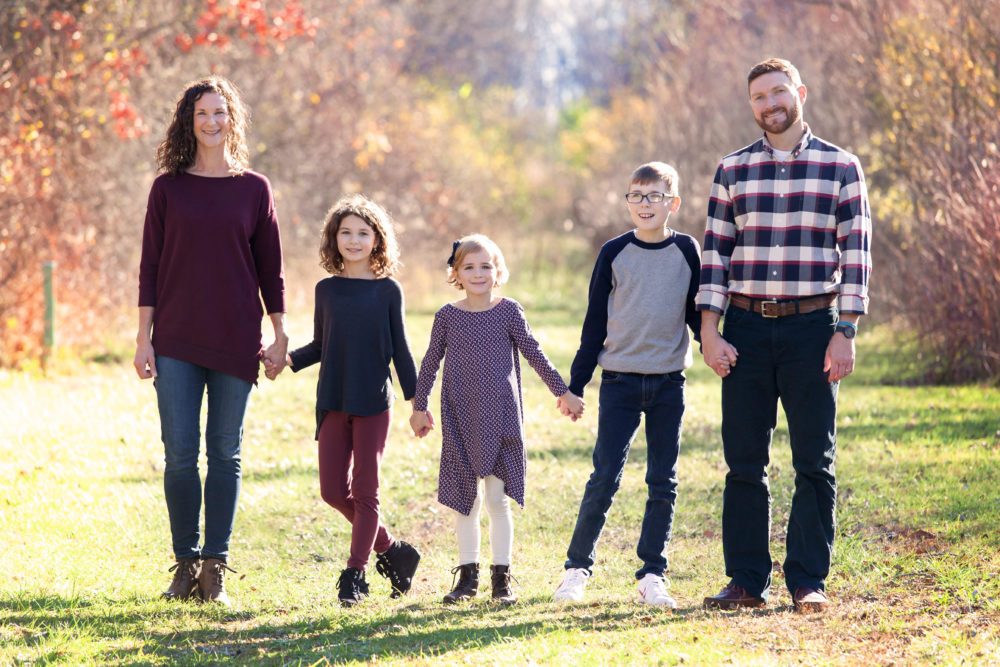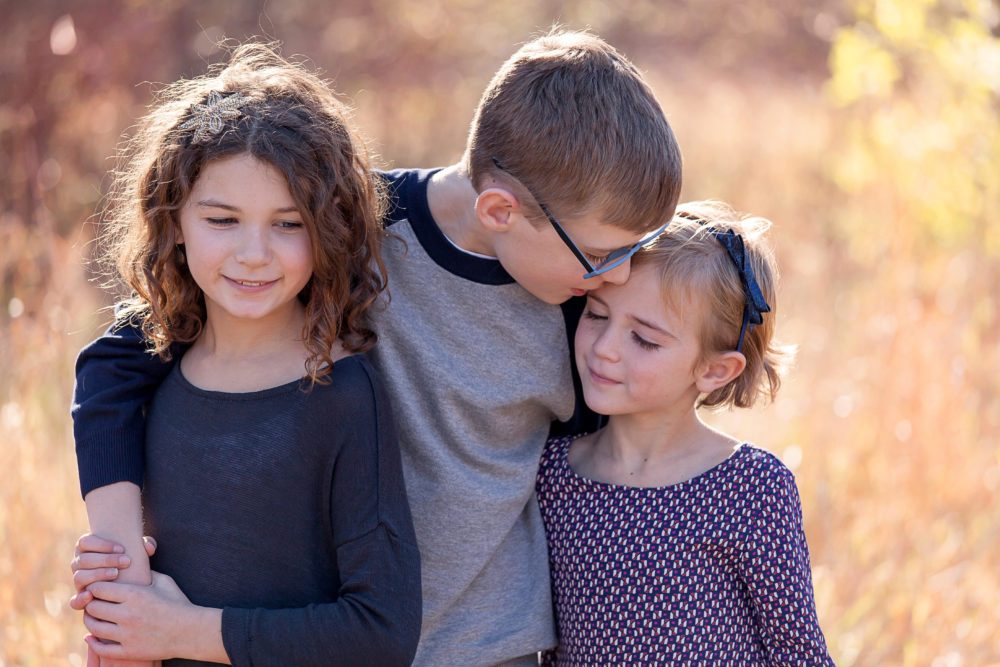
“Out of the Dark” – Beth
When it comes to high points in my life, I have many—my wedding day, each of the births of my three children. It’s difficult to choose the highest point. But when it comes to low points, there is just one. I’m thankful to have more highs than lows, but that low point in my life occupies a permanent spot in my head and heart.
The moment is still vivid. It was early morning, still dark yet, and I sat in the rocking chair in our bedroom cradling my sleeping 10-month-old daughter, and I was crying inconsolably. The day before, my pediatrician had gently broken the news to me that he suspected that our youngest daughter was developing atypically, seemingly following the path of our oldest son. The doctor suggested we take the two of them in for further testing with a new team of doctors. At the time, our 5-year-old son was nonverbal, extremely delayed in every gross and fine motor skill, and significantly intellectually impaired. In addition, we were in the middle of fighting intractable seizures that would often land him in the hospital. Our pediatrician noticed signs of a bigger issue in my daughter—lingering infant reflexes that should have disappeared, failure to thrive, and suspicious neurological clues.
I took the news home and discussed it with my husband. It wasn’t until the middle of the night when I crumbled underneath the news. I was in a dark hole and I couldn’t see out. I cried and cried and cried. I held that little baby and cried for the future. Her future. Our future. The future of our middle child. I felt like I was physically sinking into the ground beneath me. My husband knew that I was unreachable. He did the only thing he could. He sat up with me and was near. Looking back, I knew he was hurting, too, but only one of us could fall at a time.
I saw a life of doctors, hospital stays, special education. I didn’t think I could do this again. Could I? Could we? I wanted to move away and start over where nobody knew us. I wondered what people would think about our family. Two-thirds of our children had severe special needs with no diagnosis. I thought people would blame me. What had this mother done to her children? And deep down, I questioned myself. Was it the blue cheese I ate when I was pregnant? Was it being near paint fumes when we painted the nursery? Was it not resting enough when I was pregnant?
And beyond the fear was the anger. Why us? Why did other people have child after child without any issue? What had we done? We thought we were good people and we didn’t deserve this. We were high school sweethearts and we loved each other. I told my husband that I was going to cut a lot of people out of my life because it hurt too much to see their perfect lives with their perfect children.
At the time, our son had no diagnosis, despite having gone through scores of tests. When the tests came back clear, we assumed Benny’s condition was a fluke. Some people never find the cause of their child’s condition, our doctors warned us. Given the negative results on all the testing, we felt reassured that subsequent children would be just fine. Our second child, a daughter, developed typically, ahead of schedule even. We were over the moon to bring home our third child, another daughter. We had a beautiful family of five.

When Celia, our youngest, began falling behind on milestones and development, my life fell apart. My idea of our future changed in an instant. I was hopeless and helpless. I couldn’t even physically move out of that chair where I sat and cried. I wasn’t sure how I’d get up and feed the kids. How I’d make dinner. How I’d ever do anything normal again. I was in the darkest point of my life and I was devastated.
Fast forward three months to our appointment with a new geneticist at one of the country’s leading children’s hospitals where we would hear the words that would change our lives—guanidinoacetate methyltransferase deficiency. GAMT. The first cases they had seen. They were honest with their inexperience with the disorder, but they worked with us, sought the best advice from experts and together we put together an aggressive plan to move forward.
We began treatment on December 11, 2009. Benny was to turning 6 in January and Celia was 14 months old. Six years later our lives are very different. Celia has made an amazing recovery, nothing short of a miracle. There are no signs of any damage. Benny still battles the destruction that was caused in the almost 6 years of being undiagnosed. He is still nonverbal, has significant intellectual delays, needs one-on-one care in school and home. But his seizures are gone and he is progressing every day.
The diagnosis of the kids was the best thing that ever happened to us. It gave us a name. It gave us direction. It gave us a group of families that would become a support system. And most importantly it gave us peace.
Looking back on that dark moment in the rocking chair, I am able to say that it was, in fact, the lowest I would ever feel. Getting diagnosed was a ladder out of that hole. It wasn’t my fault. (In fact, I joke with my husband that we are equally at fault, given our genetic contributions.) We aren’t angry anymore. We don’t feel alone anymore. And while each family’s experience with GAMT has been vastly different, we are still able to find comradery and support in our shared diagnosis. I now have come to cherish this dark memory because it reminds me of how far we’ve come and reminds me that we have the low points to make the high ones even better.





